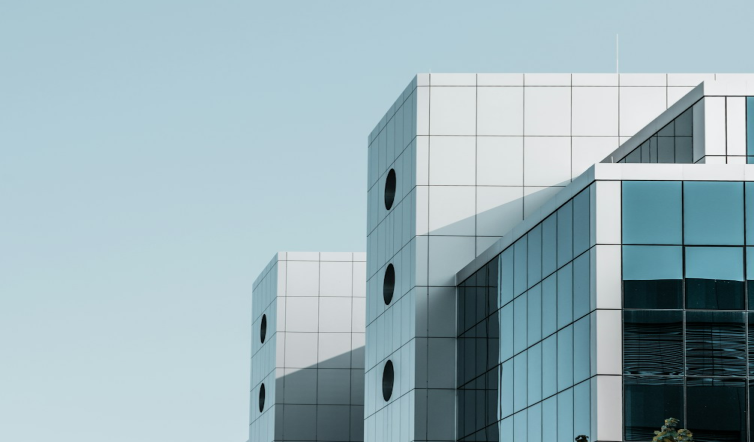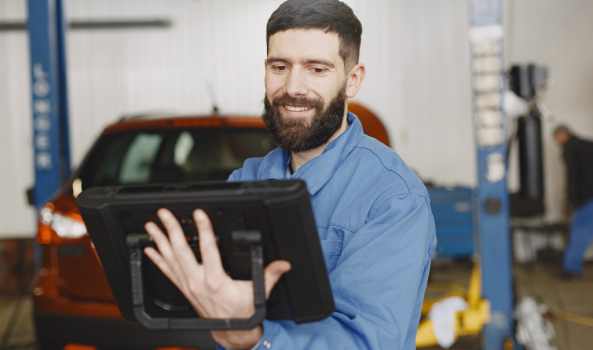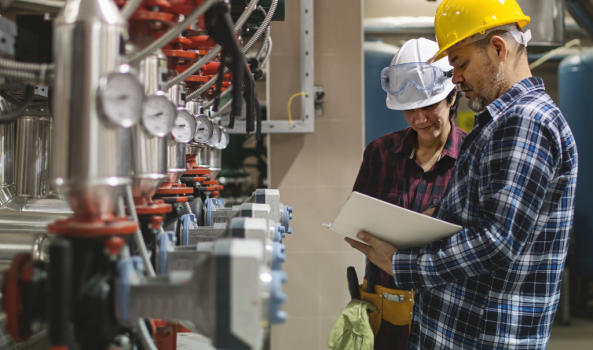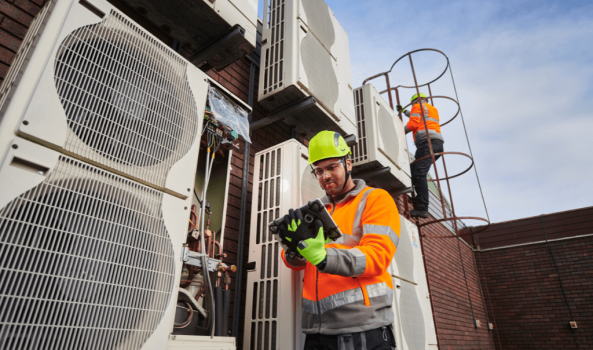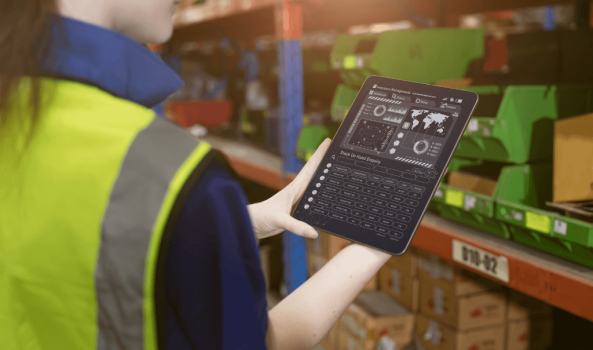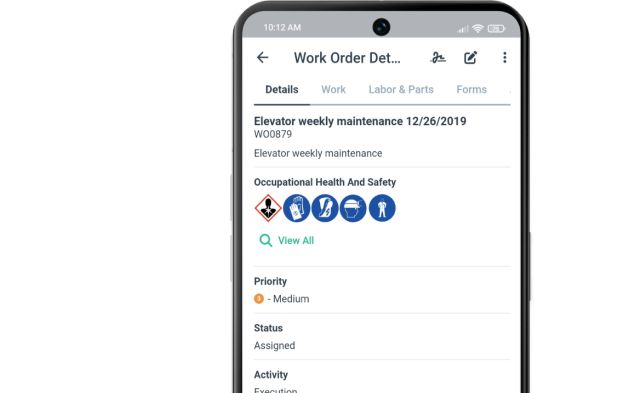Get a Free WorkTrek Demo
Let's show you how WorkTrek can help you optimize your maintenance operation.
Try for freeKey Takeaways
- Reactive maintenance costs 25-30% more than preventive strategies
- Aging infrastructure, budget constraints, compliance requirements, tenant expectations, and staffing shortages can all be addressed through strategic planning and the adoption of technology.
- 75% of facility managers already work in IoT-enabled environments.
Managing commercial properties isn’t for the faint of heart. As a property manager overseeing commercial buildings, you know that maintenance tasks can quickly spiral out of control.
From HVAC system failures to emergency repairs that blow through budgets, commercial property maintenance refers to an endless cycle of putting out fires—sometimes literally.

But here’s the thing: it doesn’t have to be this way.
Whether you’re a seasoned property manager or new to commercial property management, understanding the core maintenance challenges can transform your operations.
Understanding Commercial Property Maintenance
Commercial property maintenance is all the activities required to keep commercial buildings functional, safe, and appealing to tenants and visitors.
This includes everything from routine inspections and janitorial services to major repairs and assessments of structural integrity.
Unlike residential properties, commercial properties face unique pressures. Building systems are more complex, regulatory requirements are stricter, and the stakes are higher—one unresolved maintenance issue can cause 20% of tenants to relocate.
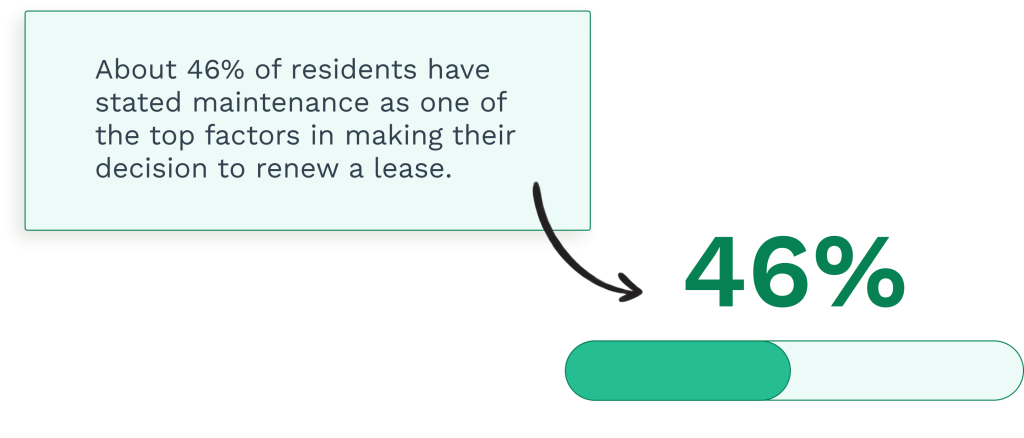
For property owners and commercial property managers, maintenance directly impacts:
- Property value preservation and appreciation
- Tenant satisfaction and retention rates
- Operational efficiency and cost management
- Legal compliance and safety concerns
- Energy consumption and sustainability goals
The reality? Based on our experience, many facility managers spend their days in reactive maintenance mode. This approach can be both stressful and expensive.
The Real Cost of Poor Maintenance Management
Let’s talk numbers, because that’s what really matters to property owners.
Reactive maintenance costs 25-30% more than preventive maintenance strategies.
That’s because when your maintenance teams are constantly responding to emergencies, you’re not just paying for repairs, you’re paying premium prices for urgent service calls, overtime labor, and expedited parts delivery.
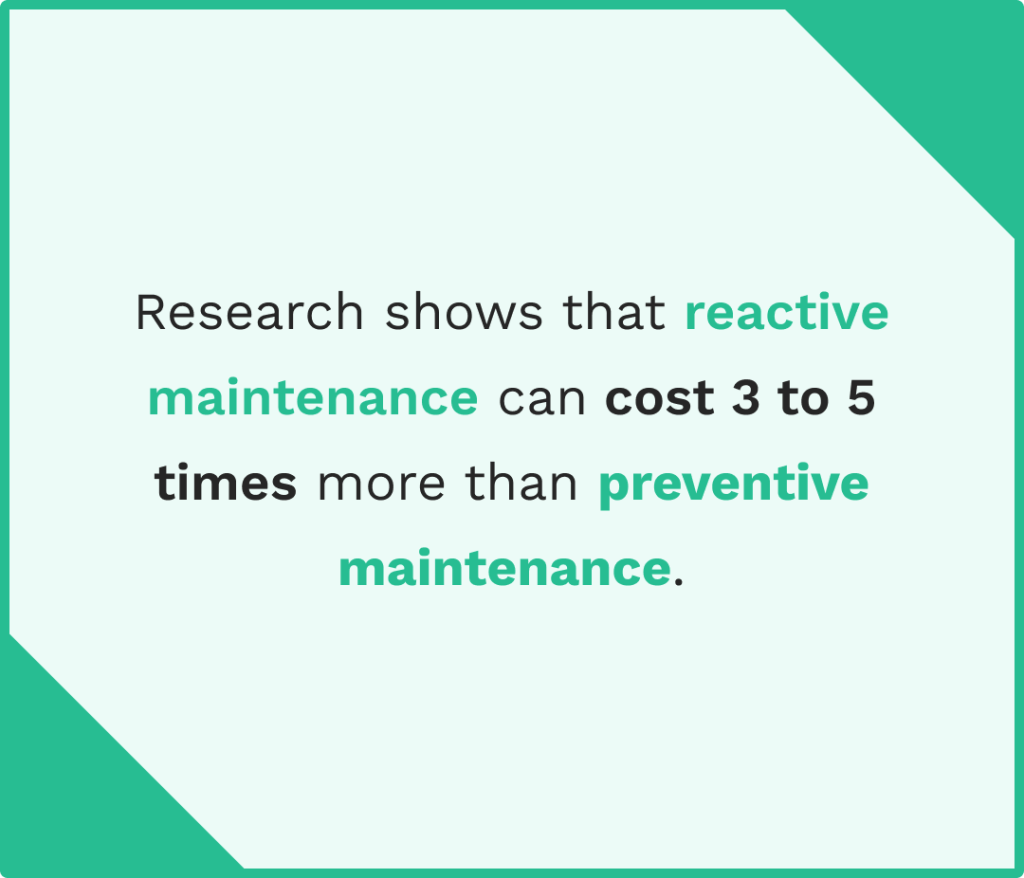
Consider this scenario: A commercial building’s HVAC system fails during peak summer.
Without a preventive maintenance program in place, what could have been a $200 routine maintenance visit becomes a $5,000 emergency repair.
This does not even account for lost productivity, unhappy tenants, and potential lease violations.
The impact extends beyond immediate costs:
- Equipment lifespan: Properly maintained HVAC systems last 15-20 years versus 9 years for neglected units
- Energy efficiency: Poor maintenance increases energy consumption by up to 30%
- Property value: Deferred maintenance can reduce commercial real estate values by 10-20%
- Tenant satisfaction: 70% of lease renewals depend on maintenance quality
Top 5 Commercial Property Maintenance Challenges
1. Aging Infrastructure and Building Systems
Most commercial buildings weren’t built yesterday.
Dealing with aging roofing systems, outdated electrical systems, and deteriorating HVAC systems can lead to a perfect storm of maintenance issues.
Property managers often inherit buildings with incomplete maintenance histories, making it difficult to predict when critical systems will fail. This is like buying a used car without any maintenance history.
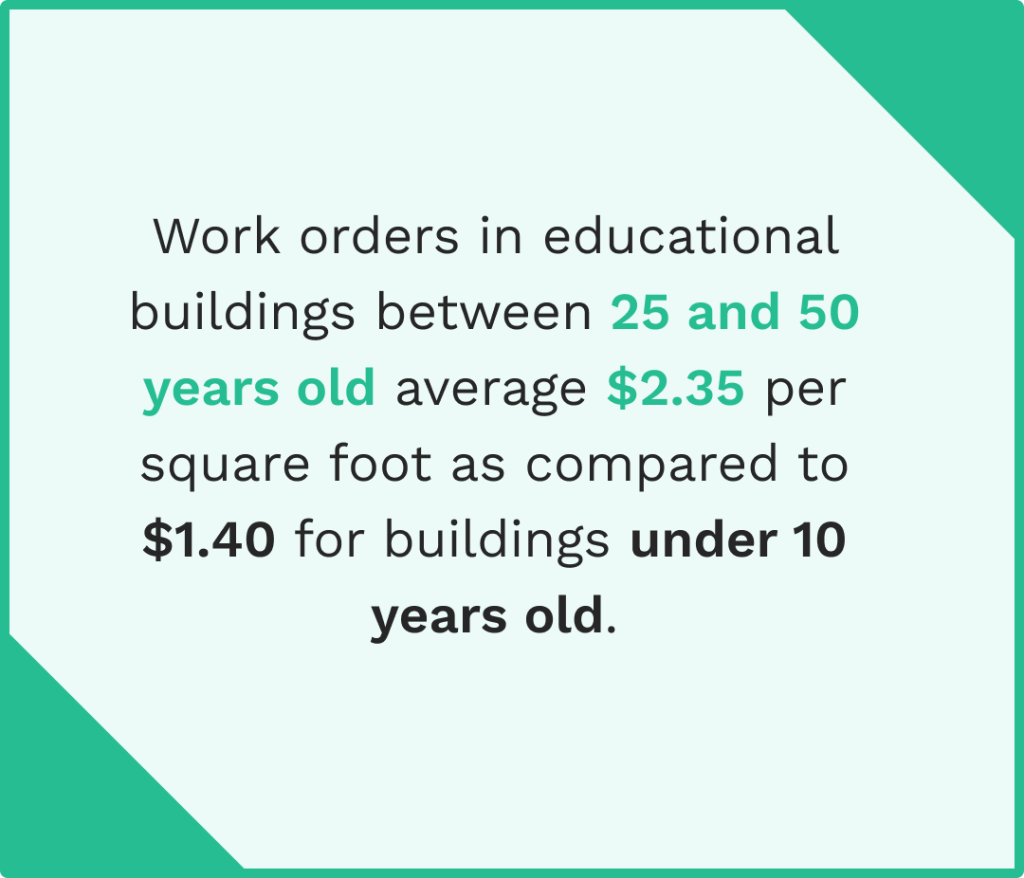
The Challenge:
Older buildings require more frequent repairs, can also have higher energy consumption, and often lack modern safety features.
Faulty wiring, inefficient heating systems, and outdated fire safety systems pose both operational and safety hazards.
The Solution:
Implement a comprehensive maintenance schedule that includes:
- Regular inspections of all building systems
- Predictive maintenance using real-time monitoring technology
- Systematic replacement planning for aging equipment
- Detailed documentation of all maintenance activities
2. Budget Constraints and Rising Costs
Maintenance costs increased 12% in 2024 alone, while property management budgets remained largely flat. This squeeze forces commercial property managers to make difficult decisions about which maintenance tasks to prioritize.
The Challenge:
Balancing routine maintenance, emergency repairs, and capital improvements within limited budgets while maintaining tenant satisfaction and ensuring compliance with safety regulations.

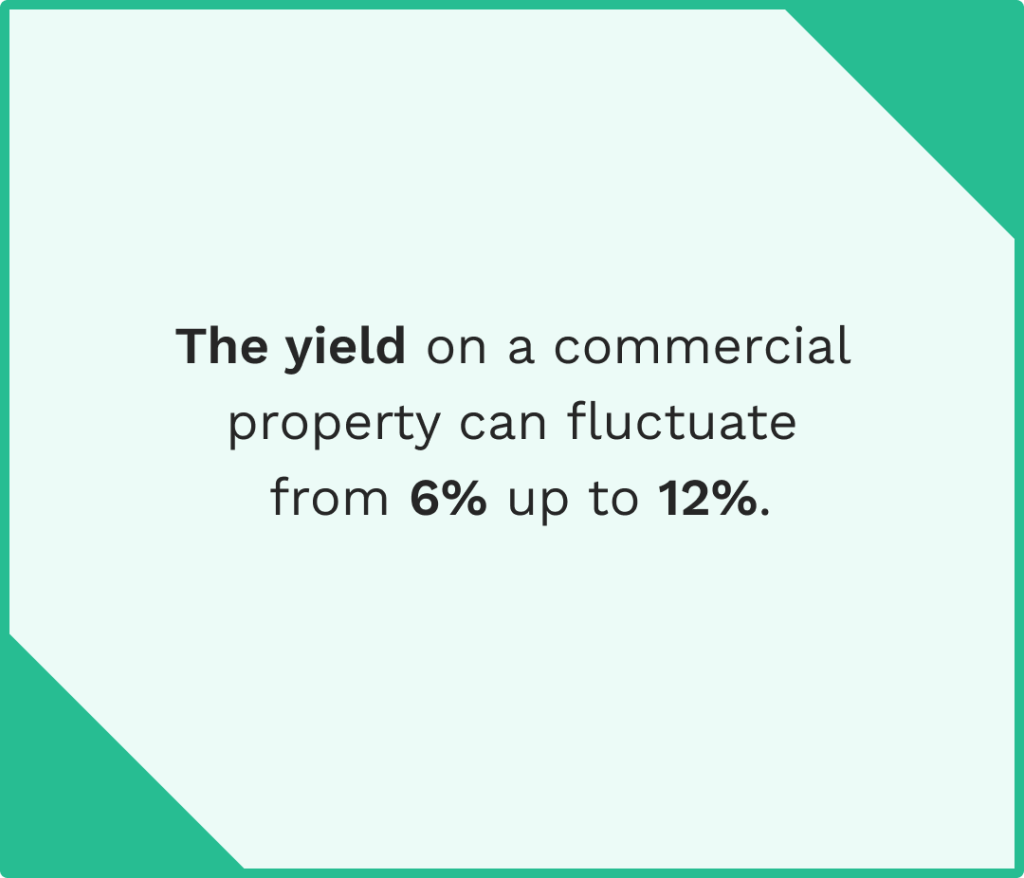
The Solution:
Transition to a preventive maintenance program that:
- Reduces emergency repair frequency by up to 70%
- Extends equipment life by 20-30%
- Delivers ROI of up to 545% through cost avoidance
- Enables better budget forecasting and resource allocation
3. Compliance and Safety Regulations
According to a recent study, 100% of surveyed maintenance professionals report uncertainty about Building Safety Act compliance.
With constantly evolving regulations around fire safety systems, accessibility requirements, and energy efficiency standards, staying compliant feels like hitting a moving target.
The Challenge:
It is not always easy to manage compliance across multiple jurisdictions. It is also difficult to manage proper documentation, define all requirements for maintenance staff, and prepare for inspections.

The Solution:
Create systematic approaches that ensure compliance:
- Develop standard operating procedures for all maintenance operations
- Implement digital documentation systems for audit trails
- Schedule regular compliance training for maintenance teams
- Use CMMS software to automate compliance reporting
- Establish relationships with certified contractors for specialized work
4. Tenant Expectations and Communication
Tenants today expect immediate responses to maintenance requests.
They also expect transparency, quick resolutions, and minimal disruption to their business operations. Meeting these expectations while managing multiple properties is increasingly challenging.
The Challenge:
39% of property managers spend over 20 hours monthly just handling maintenance requests. Communication gaps between tenants, maintenance staff, and property managers lead to frustration and decreased tenant satisfaction.

The Solution:
Enhance tenant satisfaction through:
- Online maintenance request portals for 24/7 submission using a CMMS system like WorkTrek
- Automated status updates on repair progress
- Preventative maintenance scheduling during off-hours
- Regular communication about upcoming maintenance activities
- Service level agreements with guaranteed response times
5. Staffing and Skill Shortages
43% of facility management teams are currently understaffed. Finding qualified maintenance staff is becoming increasingly difficult.
The challenge intensifies when dealing with modern building systems that require specialized knowledge.
The Challenge:
Managing increased workloads with fewer staff, training new employees on complex systems, retaining experienced maintenance staff, and ensuring coverage for emergency repairs.

The Solution: Leverage technology and best practices to maximize team efficiency:
- Implement mobile-first CMMS solutions for field productivity
- Create detailed standard operating procedures
- Invest in continuous training programs
- Consider outsourcing specialized maintenance tasks
- Use predictive maintenance to reduce emergency call-outs
Creating an Effective Preventive Maintenance Program
Moving from reactive to preventive maintenance is the single most impactful change commercial property managers can make.
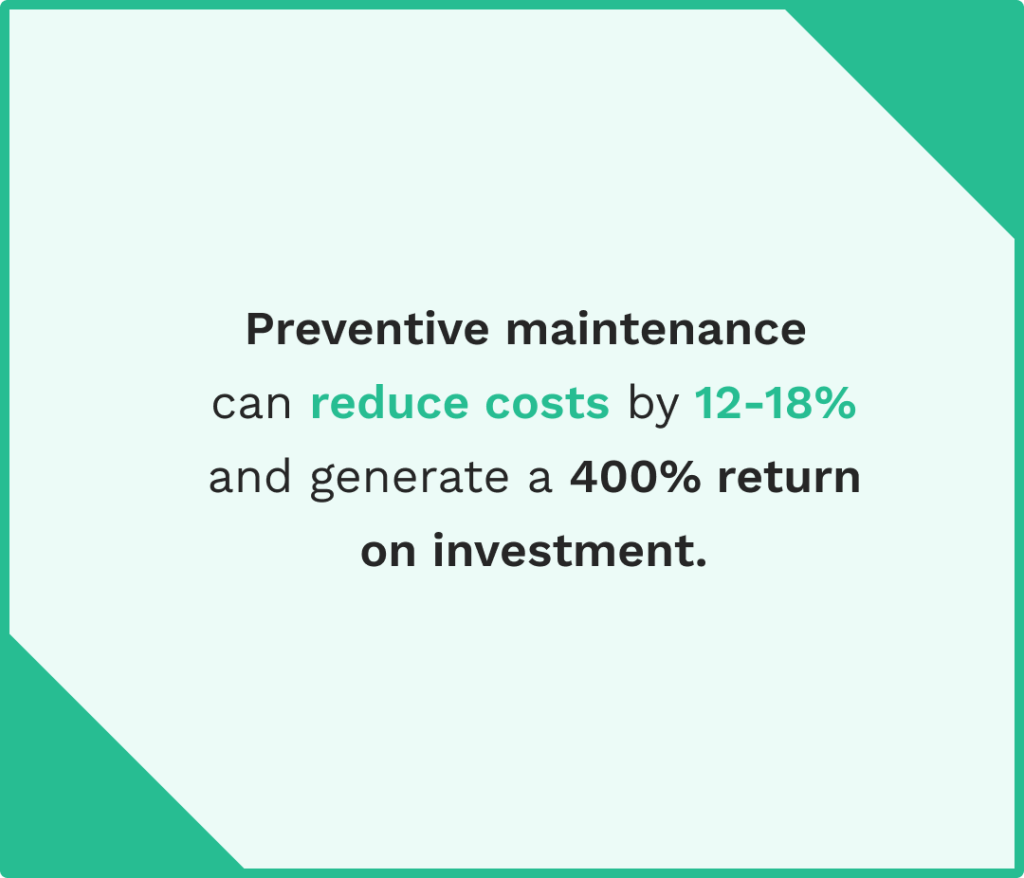
Here’s how to build a preventive maintenance program that actually works.
Step 1: Assess Your Current State
Start by evaluating your existing maintenance operations:
- Document all building systems and their current condition
- Review maintenance histories for recurring issues
- Identify critical systems that impact tenant operations
- Calculate current spending on reactive versus preventive maintenance
Step 2: Develop Your Preventive Maintenance Schedule
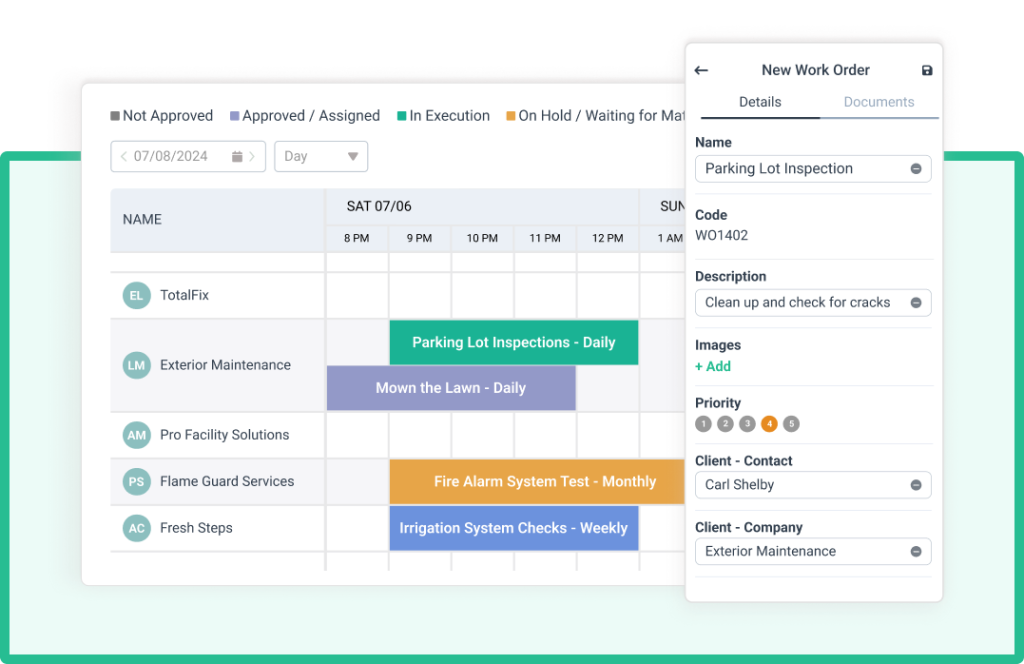
Create a comprehensive maintenance schedule that addresses:
- Daily tasks: Janitorial services, parking lot inspections, security systems checks
- Weekly tasks: Irrigation system checks, exterior inspections, minor repairs
- Monthly tasks: HVAC system filters, fire safety systems testing, elevator inspections
- Seasonal maintenance tasks: Roof inspections, gutter cleaning, and landscape maintenance
- Annual tasks: Major equipment servicing, structural integrity assessments, energy audits
Step 3: Establish Preventive Measures
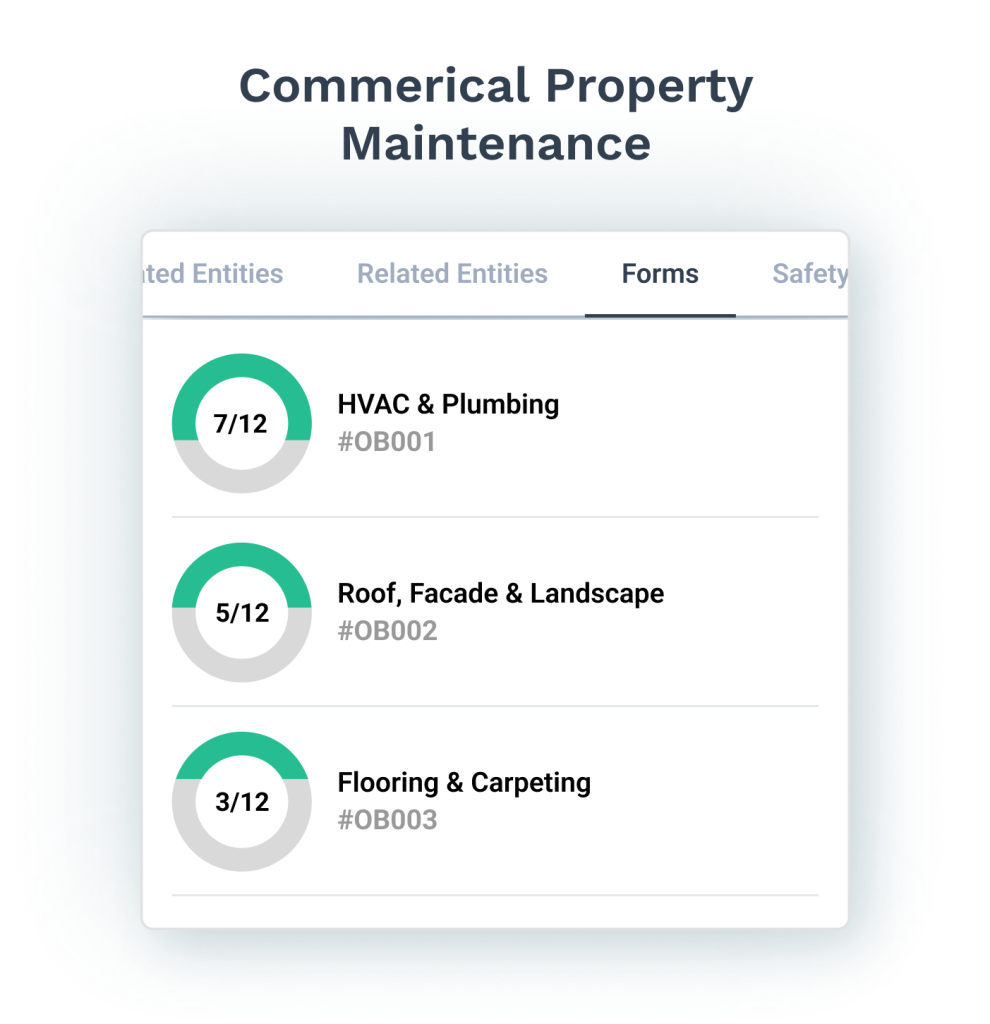
Focus on preventing problems before they occur:
- Install monitoring sensors on critical equipment
- Implement regular performance testing protocols
- Create checklists for routine inspections
- Document baseline performance metrics
- Set triggers for preventive interventions
Step 4: Build Your Maintenance Team
Whether using in-house maintenance staff or contractors:
- Define clear roles and responsibilities
- Establish training requirements and schedules
- Create emergency response protocols
- Set performance metrics and accountability measures
- Ensure proper tools and resources are available
The Role of Technology in Modern Property Maintenance
Like many industries, technology is revolutionizing how commercial property maintenance operates.

From basic work order management to sophisticated predictive maintenance systems, the right tools can transform maintenance operations.
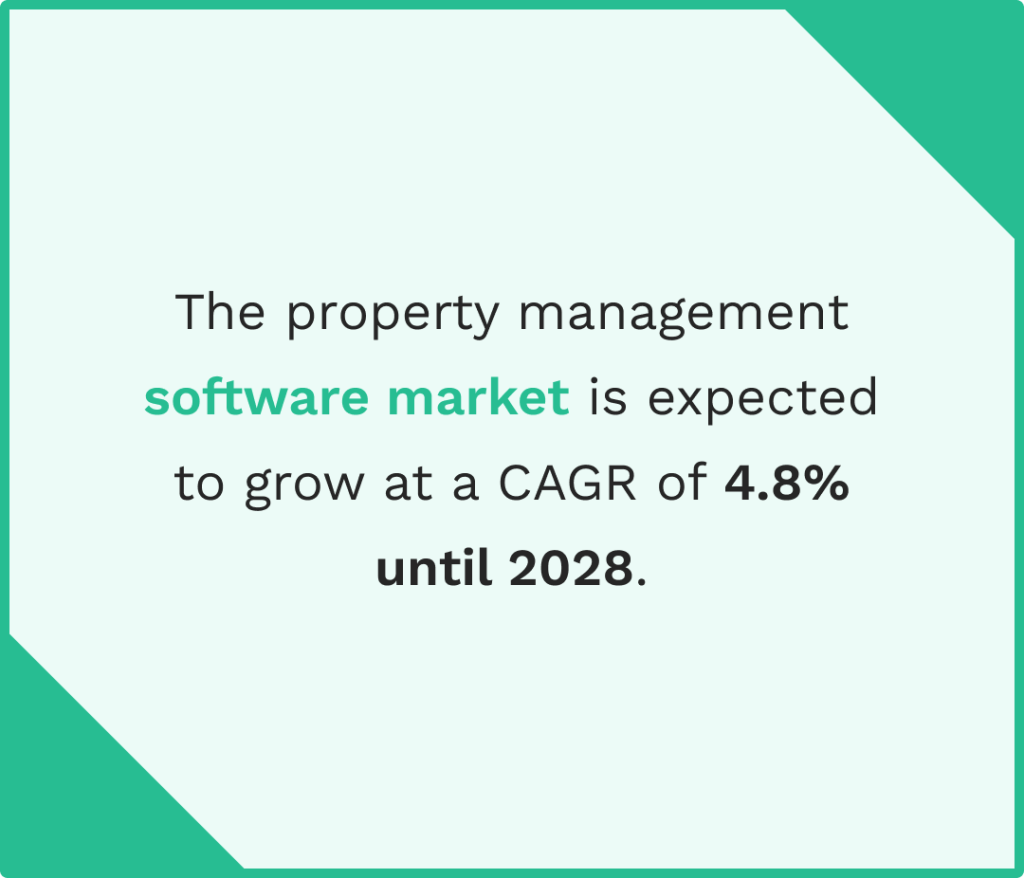
Real-Time Monitoring and IoT
75% of facility managers now work in IoT-enabled environments.
Sensors throughout commercial buildings continuously monitor:
- HVAC system performance and energy consumption
- Water pressure and leak detection
- Electrical system loads and anomalies
- Structural movement and vibration
- Indoor air quality and temperature
This real-time monitoring enables predictive maintenance, identifying potential failures before they occur.
The result? A 20-30% reduction in maintenance costs and a dramatic improvement in operational efficiency.
Mobile Technology for Field Teams
Mobile-first solutions empower maintenance teams to:
- Access work orders and building information from anywhere
- Update job status in real-time
- Capture photos and documentation on-site
- Access equipment manuals and repair procedures
- Communicate instantly with property managers
Data Analytics and Reporting
Modern CMMS platforms provide valuable insights through:
- Maintenance cost analysis by building, system, or vendor
- Equipment failure pattern identification
- Preventive maintenance effectiveness metrics
- Energy efficiency tracking and optimization
- Compliance status dashboards
How WorkTrek CMMS Helps Organizations Overcome Maintenance Challenges
WorkTrek CMMS addresses the core challenges facing commercial property maintenance through a comprehensive, user-friendly platform designed for modern property management needs.

Streamlined Work Order Management
WorkTrek simplifies maintenance requests and work order processing:
- Tenants submit requests through a self-service portal
- Automatic routing to appropriate maintenance teams
- Priority-based scheduling for efficient resource allocation
- Real-time status updates keep all stakeholders informed
- Complete audit trails for compliance documentation
Comprehensive Asset Management
Track and manage all property assets in one central location:
- Detailed equipment profiles with maintenance histories
- Automated preventive maintenance scheduling
- Warranty tracking and vendor management
- Parts inventory management with reorder alerts
- Asset performance analytics for replacement planning
Mobile-First Design for Field Productivity
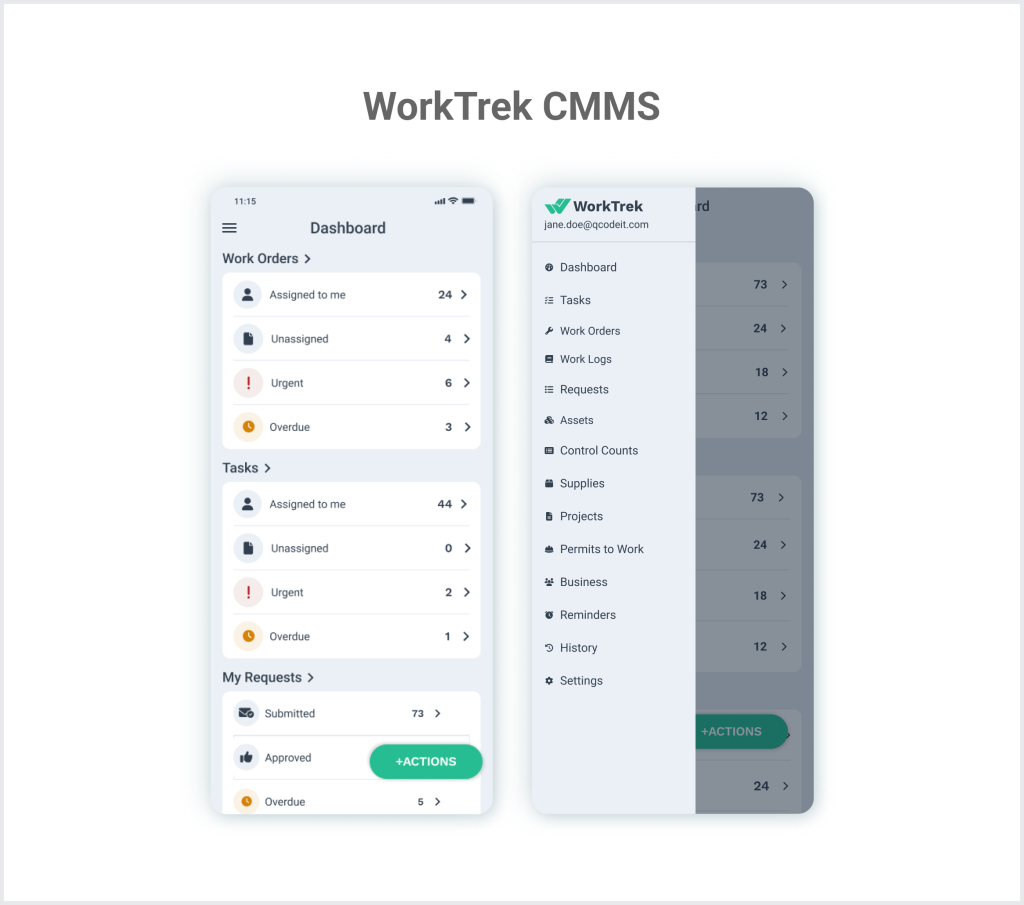
WorkTrek’s mobile app ensures maintenance staff stay productive:
- Offline functionality for basement and remote work
- GPS tracking for efficient routing between properties
- Digital forms and checklists for standardized procedures
- Photo and document attachment capabilities
- Time tracking and labor cost management
Powerful Reporting and Analytics
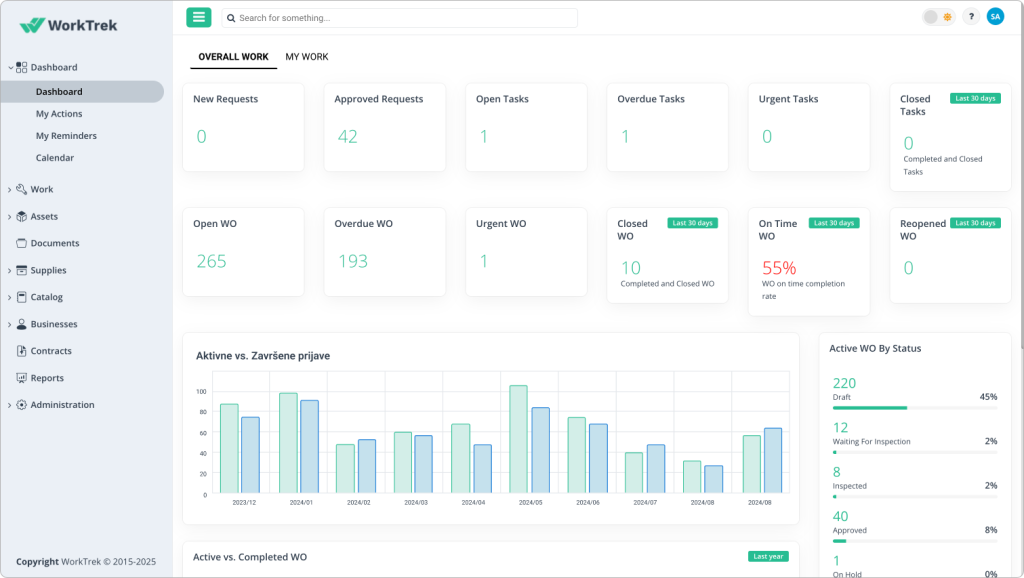
Make data-driven decisions with comprehensive reporting:
- Customizable dashboards for different stakeholder needs
- Automated compliance reporting for regulatory requirements
- Cost analysis by property, department, or maintenance type
- Predictive analytics for budget forecasting
- Performance metrics for continuous improvement
Unlimited Users Without Extra Costs
Unlike traditional CMMS solutions, WorkTrek offers unlimited requester accounts, meaning:
- All tenants can submit maintenance requests
- Property managers can provide access to all stakeholders
- No per-user licensing costs that limit adoption
- Better communication and transparency across organizations
- Improved tenant satisfaction through easy access
Real-world results from WorkTrek implementations include:
- 45% reduction in emergency repairs
- 60% faster work order completion times
- 30% decrease in overall maintenance costs
- 70% improvement in preventive maintenance compliance
- 25% increase in tenant satisfaction scores
Best Practices for Commercial Property Maintenance
1. Prioritize Preventive Over Reactive
Designate at least 30-50% of your maintenance budget to preventive activities.
This isn’t just about cost savings alone; it’s about providing reliable service to tenants and avoiding the chaos of constant emergencies.
2. Document Everything
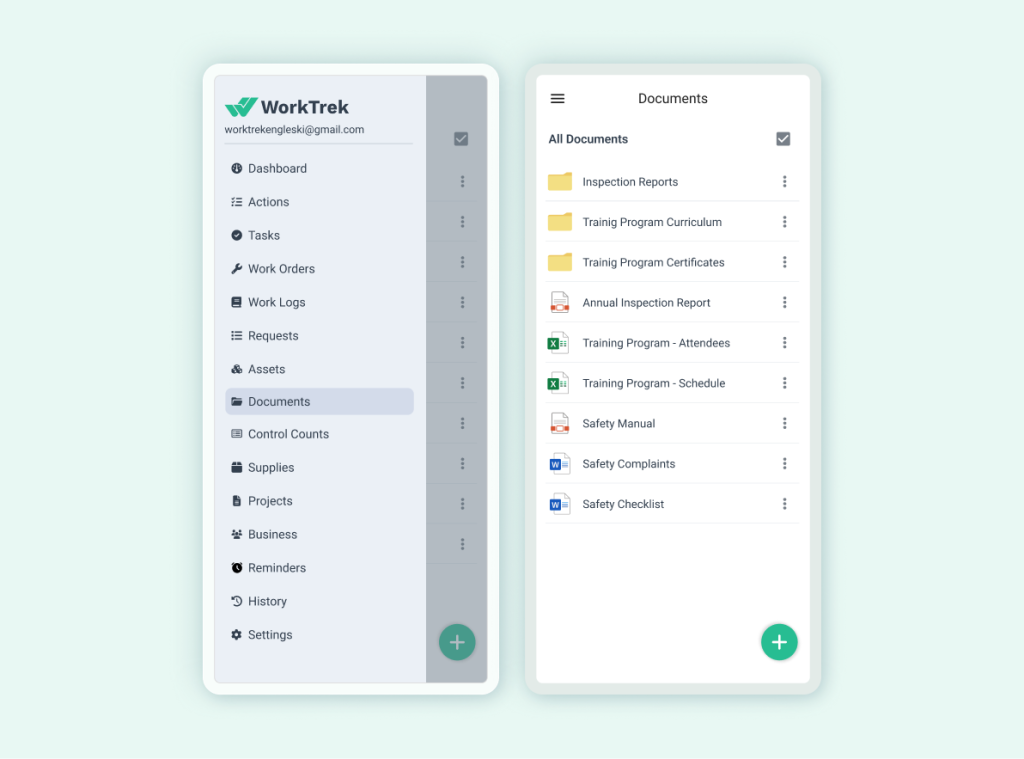
Maintain detailed records of:
- All maintenance activities and repairs
- Equipment specifications and warranties
- Vendor contracts and performance
- Compliance inspections and certifications
- Tenant complaints and resolutions
3. Focus on Energy Efficiency
Buildings can reduce energy consumption by 30% through proper maintenance.
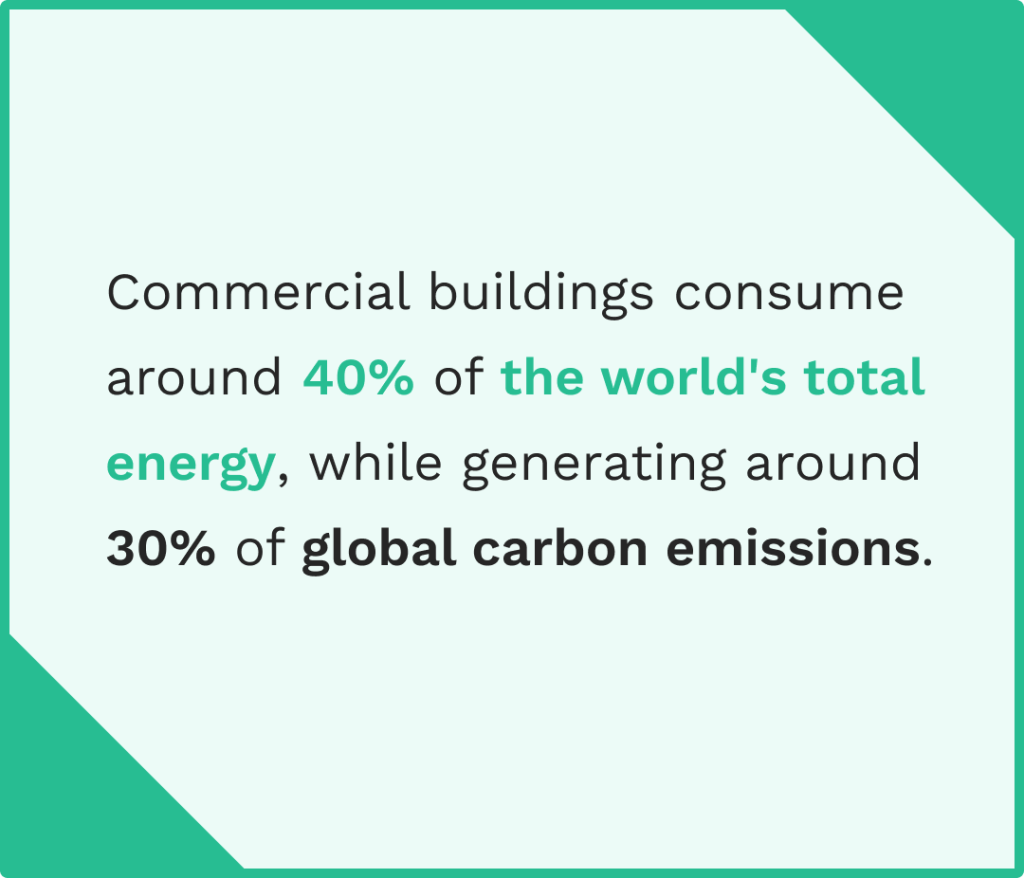
Focus on implementing:
- Regular HVAC system tune-ups and filter changes
- LED lighting upgrades and controls
- Building envelope inspections and sealing
- Water conservation measures
- Energy monitoring and benchmarking
4. Invest in Training
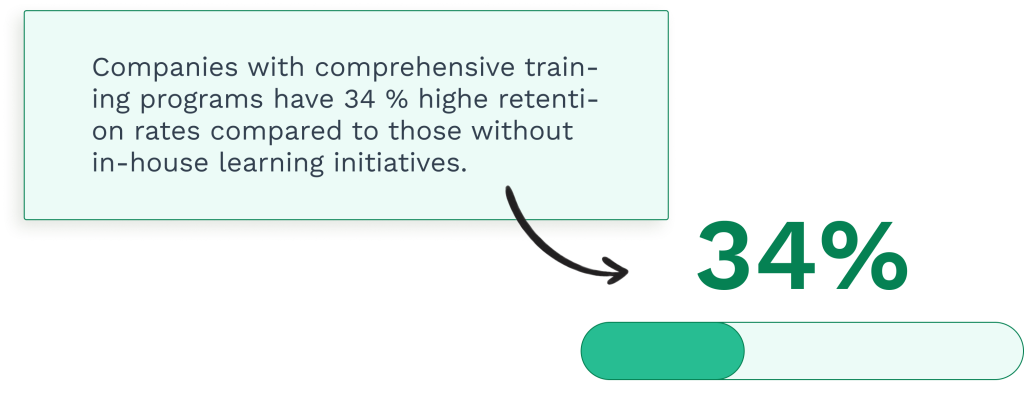
Your maintenance teams need continuous education on:
- New building technologies and systems
- Safety procedures and regulations
- Customer service and communication
- Software and mobile applications
- Sustainable practices and green building operations
5. Build Strong Vendor Relationships
Cultivate partnerships with reliable contractors who:
- Understand your properties and standards
- Provide competitive, transparent pricing
- Respond quickly to emergency calls
- Maintain proper insurance and certifications
- Share your commitment to quality service
6. Implement Sustainable Practices
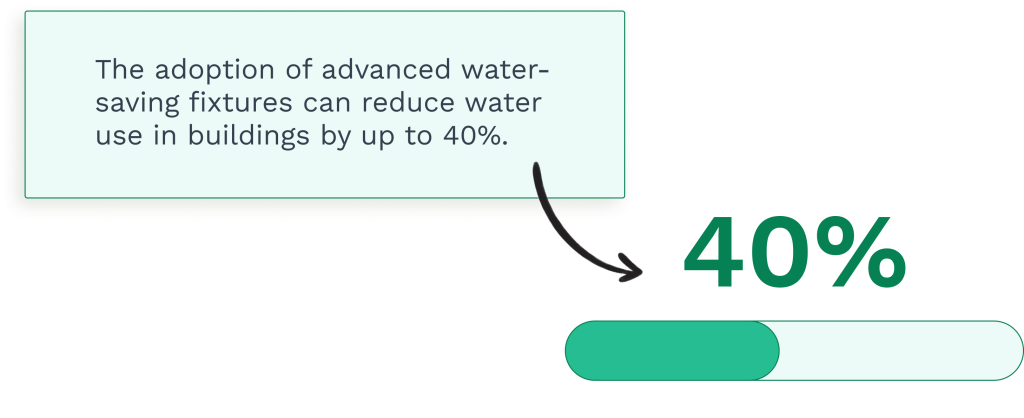
Modern tenants expect environmental responsibility:
- Establish recycling programs throughout properties
- Use eco-friendly cleaning products and methods
- Install water-saving fixtures and systems
- Optimize energy usage through smart controls
- Consider green roof systems and sustainable landscaping
7. Plan for Emergencies
Develop comprehensive emergency response plans:
- Clear evacuation procedures and communication protocols
- 24/7 emergency contact lists and escalation procedures
- Backup systems for critical operations
- Regular emergency drills and training
- Relationships with emergency service providers
Future-Proofing Your Maintenance Strategy
The commercial property maintenance landscape continues to evolve. How can you stay ahead of these changes?
Embracing Predictive Maintenance
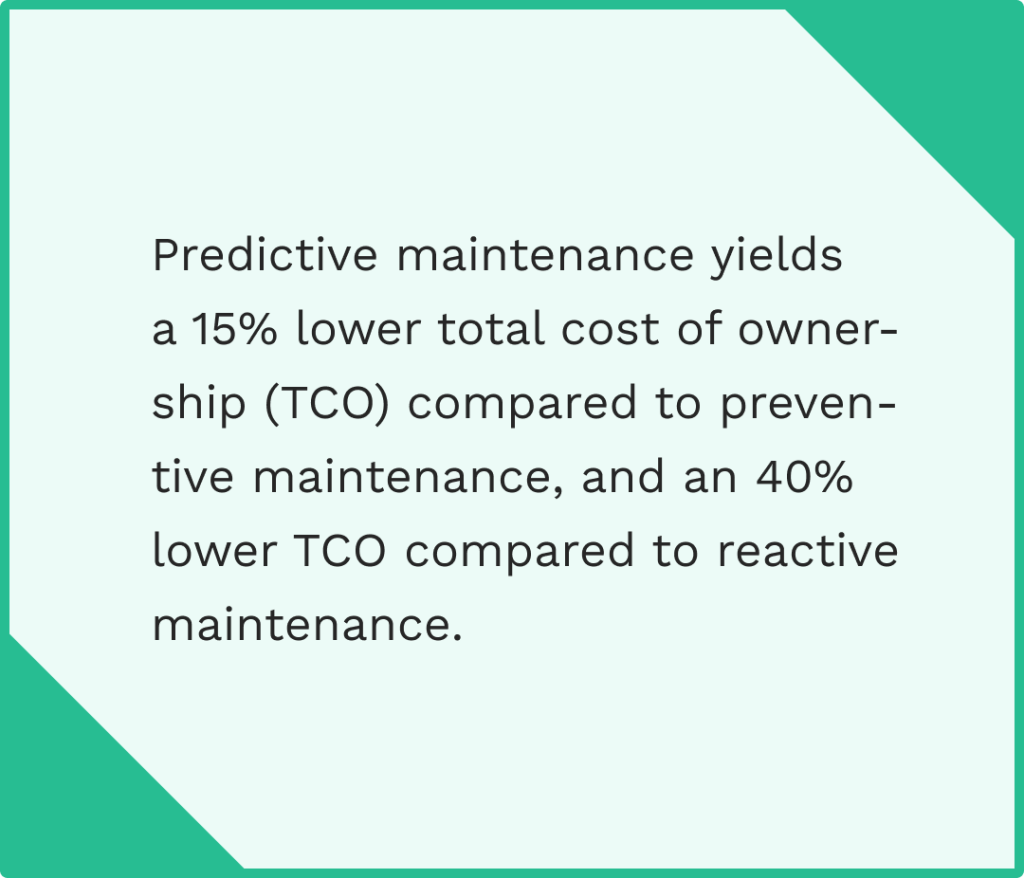
95% of organizations using predictive maintenance report positive ROI. As sensor costs decrease and analytics improve, predictive maintenance will become standard practice.
Prepare for Sustainability Requirements

Environmental regulations and tenant expectations will only intensify. Properties that proactively address energy efficiency and sustainability will command premium rents and attract quality tenants.
Invest in Technology Infrastructure

The buildings of tomorrow will be smart, connected, and data-driven. Start building the technology foundation now to avoid costly retrofits later.
Develop Talent Pipeline
With constant labor shortages, successful property managers will need creative approaches to staffing.
Some options include apprenticeship programs, cross-training initiatives, and technology-enabled productivity improvements.
Conclusion
Commercial property maintenance challenges aren’t going away. If anything, they’re becoming more complex.
However, with the right approach, these challenges can become opportunities that help you differentiate your properties, enhance tenant satisfaction, and improve financial performance.
The key is moving from reactive to proactive, from manual to automated, and from cost center to value creator.
Whether you manage a single commercial building or an extensive portfolio, implementing a comprehensive maintenance strategy supported by modern tools like WorkTrek CMMS can transform your operations.



